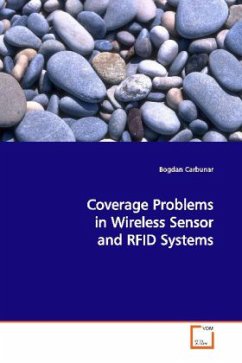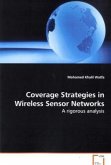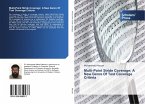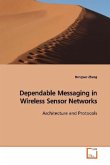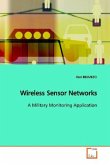The rapid self-configuration, ease of deployment and
small cost of components motivate the popularity of
wireless sensor networks, the recent interest
generated by wireless Radio Frequency Identifier
(RFID) systems and their envisioned integration.
While the autonomous operation and random deployment
of components determine the low set up cost of such
systems, they also become sources of problems. This
thesis studies the problem of extending the network
lifetime of sensor and RFID systems by defining and
detecting redundant components whose simultaneous
deactivation maintains the initial network coverage.
First, we present efficient distributed algorithms
for computing and maintaining solutions for the
redundant sensor elimination problem. Second, we
study three problems in dense RFID deployments, the
reader collision avoidance problem, the optimal tag
reporting problem and the optimal tag coverage
problem. We propose a distributed and localized
Redundant Reader Elimination (RRE) algorithm that
addresses these problems. We rigorously analyze the
performance and accuracy of all our contributions and
provide results from elaborate simulations for a wide
range of system parameters.
small cost of components motivate the popularity of
wireless sensor networks, the recent interest
generated by wireless Radio Frequency Identifier
(RFID) systems and their envisioned integration.
While the autonomous operation and random deployment
of components determine the low set up cost of such
systems, they also become sources of problems. This
thesis studies the problem of extending the network
lifetime of sensor and RFID systems by defining and
detecting redundant components whose simultaneous
deactivation maintains the initial network coverage.
First, we present efficient distributed algorithms
for computing and maintaining solutions for the
redundant sensor elimination problem. Second, we
study three problems in dense RFID deployments, the
reader collision avoidance problem, the optimal tag
reporting problem and the optimal tag coverage
problem. We propose a distributed and localized
Redundant Reader Elimination (RRE) algorithm that
addresses these problems. We rigorously analyze the
performance and accuracy of all our contributions and
provide results from elaborate simulations for a wide
range of system parameters.

